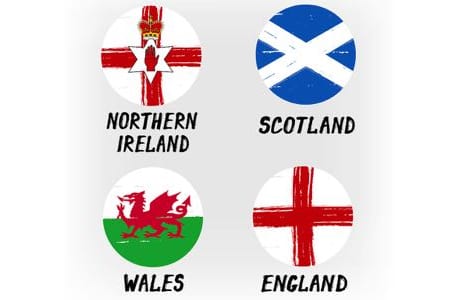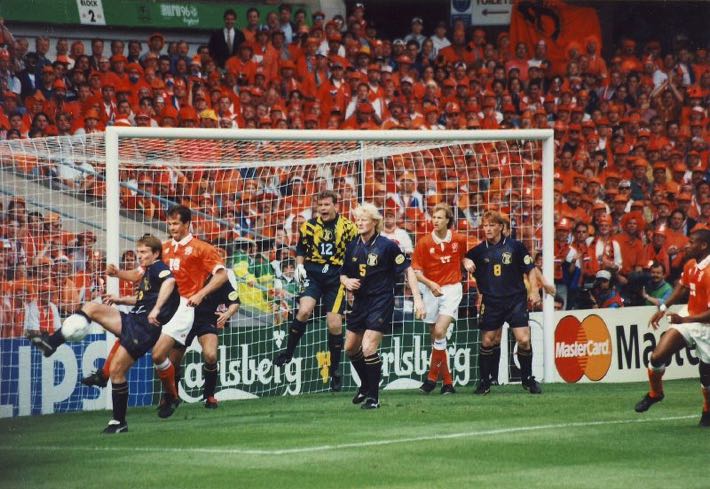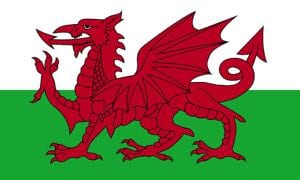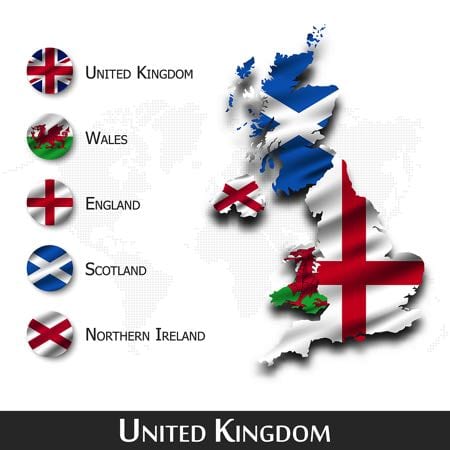 People in football love a short term to describe things. For a while it was the ‘Top Four’ in the Premier League before that got taken over by the Big Six’, for example, even when the teams that comprise the ‘Big Six’ (Liverpool, Manchester United, Manchester City, Tottenham Hotspur, Arsenal, Chelsea) were finished outside of the top six places in the top-flight. The ‘Spanish Giants’ refers specifically to Real Madrid and Barcelona, irrespective of how the two teams are actually doing during any given season.
People in football love a short term to describe things. For a while it was the ‘Top Four’ in the Premier League before that got taken over by the Big Six’, for example, even when the teams that comprise the ‘Big Six’ (Liverpool, Manchester United, Manchester City, Tottenham Hotspur, Arsenal, Chelsea) were finished outside of the top six places in the top-flight. The ‘Spanish Giants’ refers specifically to Real Madrid and Barcelona, irrespective of how the two teams are actually doing during any given season.
The Home Nations is a term that collective refers to England, Scotland, Wales and Northern Ireland in the United Kingdom, specifically when it comes to football. The Home Nations in the likes of rugby is slightly different, owing to the fact that island of Ireland is represented by the Irish Rugby Football Union. Regardless, it is the four countries that make up the United Kingdom and could play each other in a competition, should they all qualify.
The Origins of the Home Nations

The idea of the Home Nations began to take form in the 1890s when talk of a ‘championship’ between England, Scotland, Wales and what was then a united Ireland started up. This championship didn’t become a competition as we would understand it today until 1935 when a prize was added to it and the title of British International Championship was the label applied to it.
The four nations have always considered themselves to be entirely separate entities, as demonstrated by the 2012 Summer Olympics when there was a huge debate over the idea of a single team representing the United Kingdom taking part in the football competition. The English Football Association was the only FA in favour of this initially, with the media using the term ‘Home Nations’ on a regular basis.
When the actual tournament came around, the team consisted only of English and Welsh players. The Welsh FA still didn’t approve of its players taking part in the Olympics, but chose not to put sanctions on the players that did want to take part. It served as demonstration of the fact that the four teams based in the United Kingdom did not see each other as anything other than enemies, unable to work together successfully.
Looking at the Nations
Having explained the idea behind the Home Nations as a concept, let’s take a slightly closer look at each of the nations in question and a brief history of their association with football.
England
 England’s men’s nation football team is the joint-oldest in the world alongside one of the other nations on this list. It played for the first time in a representative match on the fifth March in 1870 and is the most successful of all the teams that we’re looking at here. The first official international football match took place in November of 1872 between England and Scotland, with all of the Three Lions’ matches over the next 40 years being played exclusively between the other Home Nations.
England’s men’s nation football team is the joint-oldest in the world alongside one of the other nations on this list. It played for the first time in a representative match on the fifth March in 1870 and is the most successful of all the teams that we’re looking at here. The first official international football match took place in November of 1872 between England and Scotland, with all of the Three Lions’ matches over the next 40 years being played exclusively between the other Home Nations.
Scotland
 Formed at the same time as England, Scotland is the joint-oldest international football team. They played five matches against the Three Lions at Oval between 1870 and 1872, as well as taking part in the aforementioned first official football match on the 30th of November 1872 at Hamilton Crescent, Partick. They didn’t lose to a team other than England until 1903 when Ireland beat them 2-0. They defeated England 5-1 in 1928, one of the country’s most noteworthy wins.
Formed at the same time as England, Scotland is the joint-oldest international football team. They played five matches against the Three Lions at Oval between 1870 and 1872, as well as taking part in the aforementioned first official football match on the 30th of November 1872 at Hamilton Crescent, Partick. They didn’t lose to a team other than England until 1903 when Ireland beat them 2-0. They defeated England 5-1 in 1928, one of the country’s most noteworthy wins.
Wales
 The national football team of Wales is a relatively young one, given that it didn’t play its first match until 1876. That was against Scotland in Glasgow and kick-started the Welsh involvement with the Home Nations. The first international match in Wales itself took place on the fifth of March 1877 when the home side hosted a return match against Scotland, losing 2-0. They were part of the establishment of the International Football Association Board, which was created in December of 1882.
The national football team of Wales is a relatively young one, given that it didn’t play its first match until 1876. That was against Scotland in Glasgow and kick-started the Welsh involvement with the Home Nations. The first international match in Wales itself took place on the fifth of March 1877 when the home side hosted a return match against Scotland, losing 2-0. They were part of the establishment of the International Football Association Board, which was created in December of 1882.
Ireland / Northern Ireland
 Of all of the Home Nations, Ireland’s history is easily the most complicated. The Ireland national football team was formed in 1882 and represented the island of Ireland in football matches until 1950. Though the partition of Ireland occurred in the 1920s, the country still played football as a whole until the Football Association of Ireland took steps to stop players from the Republic of Ireland being picked. At this point, the Republic of Ireland and Northern Ireland became two different and separate football teams.
Of all of the Home Nations, Ireland’s history is easily the most complicated. The Ireland national football team was formed in 1882 and represented the island of Ireland in football matches until 1950. Though the partition of Ireland occurred in the 1920s, the country still played football as a whole until the Football Association of Ireland took steps to stop players from the Republic of Ireland being picked. At this point, the Republic of Ireland and Northern Ireland became two different and separate football teams.
How the Nations Have Fared
 The establishment of the various national sides over the years led to the point that the four different countries that make up the United Kingdom were able to compete against each other on a regular basis. They did so in what became known as the British Home Championship, which evolved to include all four teams by 1884. Prior to that, there was a mixture of whichever nations had officially formed football clubs.
The establishment of the various national sides over the years led to the point that the four different countries that make up the United Kingdom were able to compete against each other on a regular basis. They did so in what became known as the British Home Championship, which evolved to include all four teams by 1884. Prior to that, there was a mixture of whichever nations had officially formed football clubs.
Alongside the British Home Championship, the Home Nations had a complicated relationship with both FIFA, who hosted the World Cup every four years, and UEFA, who were responsible for the hosting of the European Championship in the intervening years between World Cups. Here’s a look at how each nation got on when it came to the two major tournaments, with a more in-depth look at the British Home Championship elsewhere on this site:
| Year | Competition | England | Scotland | Wales | Northern Ireland |
|---|---|---|---|---|---|
| 1930 | World Cup | Did Not Take Part | Did Not Take Part | Did Not Take Part | Did Not Take Part |
| 1934 | World Cup | Did Not Take Part | Did Not Take Part | Did Not Take Part | Did Not Take Part |
| 1938 | World Cup | Did Not Take Part | Did Not Take Part | Did Not Take Part | Did Not Take Part |
| 1950 | World Cup | Knocked Out At Group Stage | Withdrew | Did Not Qualify | Did Not Qualify |
| 1954 | World Cup | Quater-Finals Exit | Knocked Out At Group Stage | Did Not Qualify | Did Not Qualify |
| 1958 | World Cup | Knocked Out At Group Stage | Knocked Out At Group Stage | Quarter-Finals Exit | Quarter Finals Exit |
| 1960 | European Championship | Did Not Take Part | Did Not Take Part | Did Not Take Part | Did Not Take Part |
| 1962 | World Cup | Quater-Finals Exit | Did Not Qualify | Did Not Qualify | Did Not Qualify |
| 1964 | European Championship | Did Not Qualify | Did Not Take Part | Did Not Qualify | Did Not Qualify |
| 1966 | World Cup | Winners | Did Not Qualify | Did Not Qualify | Did Not Qualify |
| 1968 | European Championship | Semi-Finals Exit | Did Not Qualify | Did Not Qualify | Did Not Qualify |
| 1970 | World Cup | Quarter-Finals Exit | Did Not Qualify | Did Not Qualify | Did Not Qualify |
| 1972 | European Championship | Did Not Qualify | Did Not Qualify | Did Not Qualify | Did Not Qualify |
| 1974 | World Cup | Did Not Qualify | Knocked Out At Group Stage | Did Not Qualify | Did Not Qualify |
| 1976 | European Championship | Did Not Qualify | Did Not Qualify | Did Not Qualify | Did Not Qualify |
| 1978 | World Cup | Did Not Qualify | Knocked Out At Group Stage | Did Not Qualify | Did Not Qualify |
| 1980 | European Championship | Knocked Out At Group Stage | Did Not Qualify | Did Not Qualify | Did Not Qualify |
| 1982 | World Cup | Knocked Out At 2nd Group Stage | Knocked Out At Group Stage | Did Not Qualify | Knocked Out In 2nd Round |
| 1984 | European Championship | Did Not Qualify | Did Not Qualify | Did Not Qualify | Did Not Qualify |
| 1986 | World Cup | Quarter-Finals Exit | Knocked Out At Group Stage | Did Not Qualify | Knocked Out At Group Stage |
| 1988 | European Championship | Knocked Out At Group Stage | Did Not Qualify | Did Not Qualify | Did Not Qualify |
| 1990 | World Cup | Semi-Finals Exit | Knocked Out At Group Stage | Did Not Qualify | Did Not Qualify |
| 1992 | European Championship | Knocked Out At Group Stage | Knocked Out At Group Stage | Did Not Qualify | Did Not Qualify |
| 1994 | World Cup | Did Not Qualify | Did Not Qualify | Did Not Qualify | Did Not Qualify |
| 1996 | European Championship | Semi-Finals Exit | Knocked Out At Group Stage | Did Not Qualify | Did Not Qualify |
| 1998 | World Cup | Round of 16 Exit | Knocked Out At Group Stage | Did Not Qualify | Did Not Qualify |
| 2000 | European Championship | Knocked Out At Group Stage | Did Not Qualify | Did Not Qualify | Did Not Qualify |
| 2002 | World Cup | Quarter-Finals Exit | Did Not Qualify | Did Not Qualify | Did Not Qualify |
| 2004 | European Championship | Quarter-Finals Exit | Did Not Qualify | Did Not Qualify | Did Not Qualify |
| 2006 | World Cup | Quarter-Finals Exit | Did Not Qualify | Did Not Qualify | Did Not Qualify |
| 2008 | European Championship | Did Not Qualify | Did Not Qualify | Did Not Qualify | Did Not Qualify |
| 2010 | World Cup | Round of 16 Exit | Did Not Qualify | Did Not Qualify | Did Not Qualify |
| 2012 | European Championship | Quarter-Finals Exit | Did Not Qualify | Did Not Qualify | Did Not Qualify |
| 2014 | World Cup | Knocked Out At Group Stage | Did Not Qualify | Did Not Qualify | Did Not Qualify |
| 2016 | European Championship | Round Of 16 Exit | Did Not Qualify | Semi-Finals Exit | Round Of 16 Exit |
| 2018 | World Cup | Semi-Finals Exit | Did Not Qualify | Did Not Qualify | Did Not Qualify |
You can see, then, that all four Home Nations have had a mixed time in the major tournaments. Though England have been the most successful of the four countries, even the Three Lions have had their share of disappointments when they’ve missed out and, to an extent, live off 1966’s World Cup win in terms of something to boast about. Indeed, were it not for the British Home Championship, very few of the countries would have much to boast about at all…